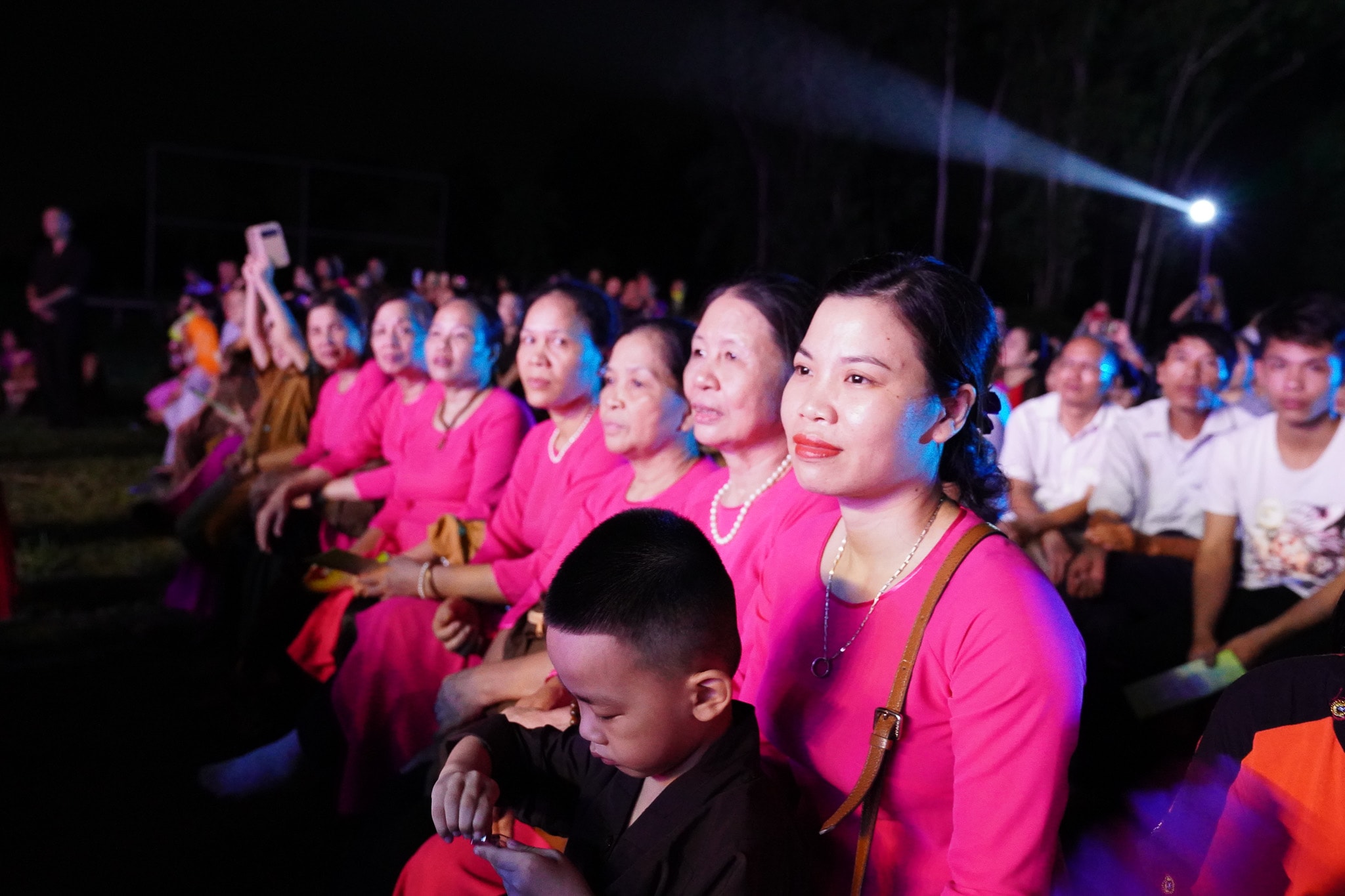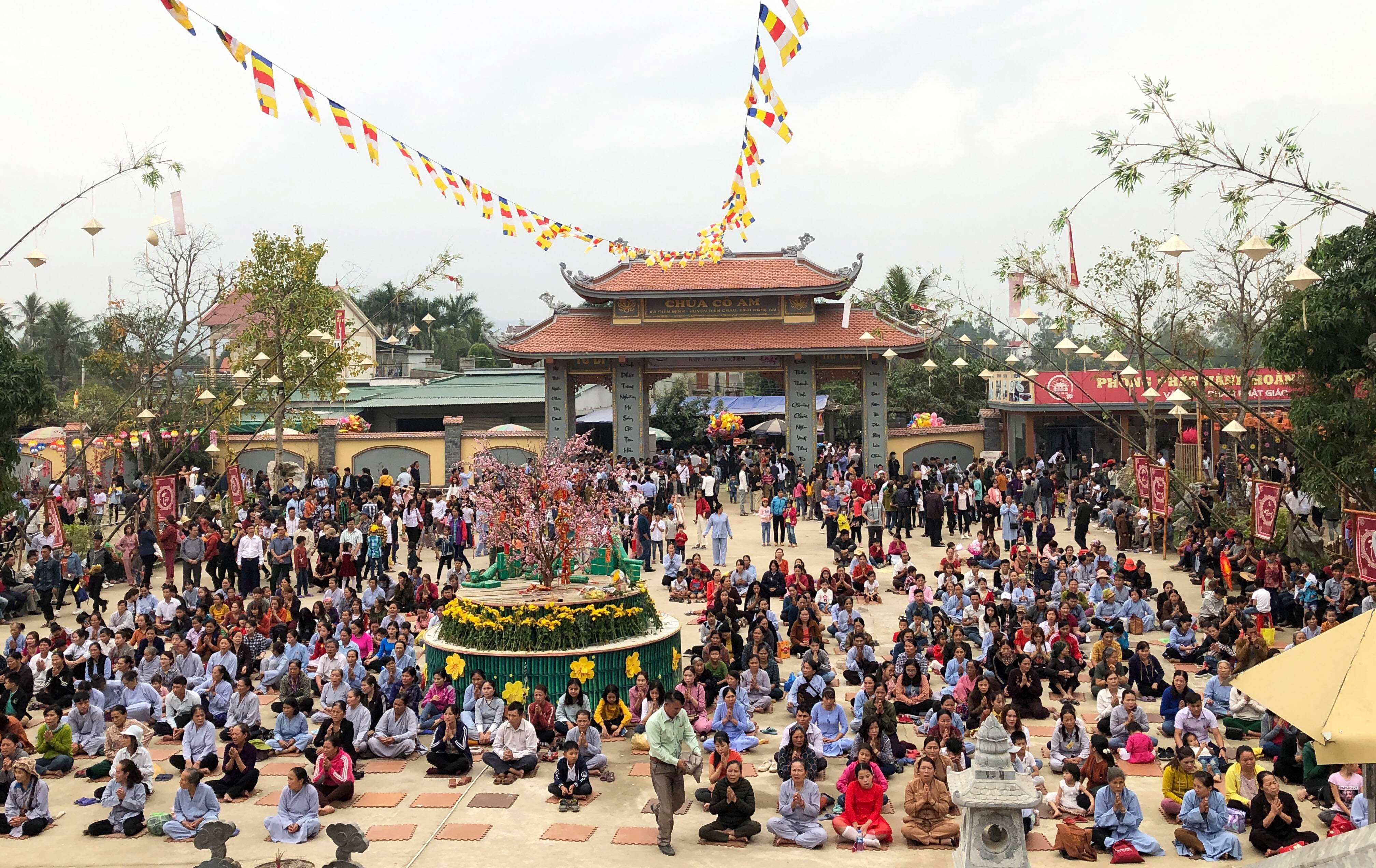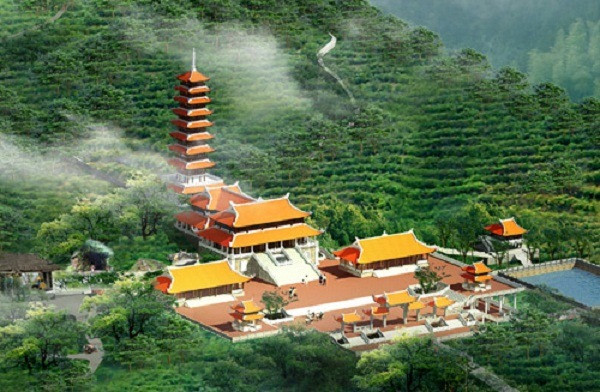Vietnamese Buddhism and the journey to realize the desire for freedom
(Baonghean) - That thought of President Ho Chi Minh is the red thread running through the system of viewpoints of our Party and State towards religion over the past decades. It is also the basis for Vietnamese Buddhism to always accompany the struggle for independence, freedom and the right to life of human beings.
Buddhism accompanies the nation
This fall, President Ho Chi Minh has been gone from us for 50 years. But the thoughts, feelings and spiritual heritage that he left behind will forever be the orientations and signs that guide the whole nation to join hands to realize his noble wishes: "To make the country unified, independent, the people free, everyone has food to eat, clothes to wear, everyone can study" - as he always wished. On that thorny path, the Vietnamese people always have Buddhism as a companion.
Remembering President Ho Chi Minh, we are proud of the legacy he left for future generations. Not only when he wrote his will, but also in the reality of his life of tireless revolutionary activities, Uncle Ho was an example of absolute sacrifice and dedication to the ideal of independence and freedom of the people. President Ho Chi Minh is a testament to the spirit of national solidarity - the source of boundless strength of the Vietnamese revolution.
 |
| Vu Lan ceremony at a pagoda in Vinh city. Photo: Hai Vuong |
That thought of President Ho Chi Minh is the red thread running through the system of viewpoints of our Party and State towards religion over the past decades. It is also the basis for Vietnamese Buddhism to always accompany the struggle for independence, freedom and the right to life of human beings.
 |
| More than 100 Buddhists made a pilgrimage from Vinh City and neighboring areas to Tu Hieu Pagoda hoping to pay homage to Master Thich Nhat Hanh, the second most influential Buddhist leader in the West, after the Dalai Lama. Photo courtesy |
Inheriting the nation's tradition of patriotism and love for its people, promoting the positive elements of the worldly perspective of Mahayana Buddhism introduced into our country thousands of years ago, in the context of many historical changes, Vietnamese Buddhism has opened the doors of the pagoda to welcome new values of the times without closing the doors of self-cultivation, despite the fact that out there, our nation and our compatriots are trampled under the invading heels of colonial imperialists.
It can be affirmed that Ho Chi Minh's aspiration for freedom and independence has influenced every corner of each person's thoughts and actions. Every day that the country has not been freed from foreign invasion is a day that our people have not been able to live in peace. For decades, the North and the South were divided, and together with the revolutionary forces, Southern Buddhism was ready to enter the world, participate in the struggle and sacrifice for that noble goal.
 |
| Since the Buddhist filial piety festival, Vu Lan Festival has become a familiar event to many people, carrying the profound meaning of gratitude and filial piety of Eastern people. Photo: Ho Chien |
It is truly admirable that, having determined to turn his physical body into a flame to fight for Buddhism, the Venerable Master was always compassionate and tolerant towards the erring government, when he wrote in a letter before self-immolation: “I hope that Buddha will bless President Ngo Dinh Diem with wisdom… I respectfully ask President Ngo Dinh Diem to use compassion and love towards the people and implement a policy of religious equality to preserve the country forever.”
 |
| Wearing flowers at Vu Lan Ceremony at Diec Pagoda (Vinh city). Photo: Hai Vuong |
Monks temporarily put aside their scriptures to join the army, Buddhists left lecture halls to fight in the swamps, organizations and associations were founded by monks and operated in big cities; pagodas became places to hide revolutionary cadres... were worthy contributions of Buddhists to the cause of fighting to liberate the South in the Spring of 1975.
Promote solidarity
In a peaceful and unified country, promoting the tradition of national solidarity, Vietnamese Buddhism has realized the aspiration to unify 9 Buddhist sects in a common organization, the Vietnam Buddhist Sangha - the only Sangha representing monks, nuns, and Buddhists at home and abroad with the motto of "Dharma - Nation - Socialism"; supporting and propagating Buddhism and participating in building and protecting the Fatherland, serving the nation, contributing to building peace and happiness for the world.
 |
| Co Am Pagoda (Dien Minh - Dien Chau) always attracts a large number of tourists and Buddhists to visit. Photo courtesy of Huy Thu |
Nearly 40 years of operation under the same roof as the Vietnam Buddhist Sangha, Buddhists across the country have always been imbued with the teachings of President Ho Chi Minh on the spirit of solidarity. Under the light of the Party's guidelines and policies and the State's laws on religion, Vietnamese Buddhism has developed continuously and increasingly maintained its worthy position in the spiritual and religious life of the nation and the development of world Buddhism.
The 3 times hosting the VESAK Festival are the 3 times Vietnamese Buddhism has proven to the world that Vietnam is a peaceful and beautiful country; that the Vietnamese people love peace; that freedom, equality, and happiness for people are always the goals of Vietnamese Buddhism in the process of development and integration.
 |
| Panoramic view of Dai Tue Pagoda (Nam Dan). Photo: Document |
